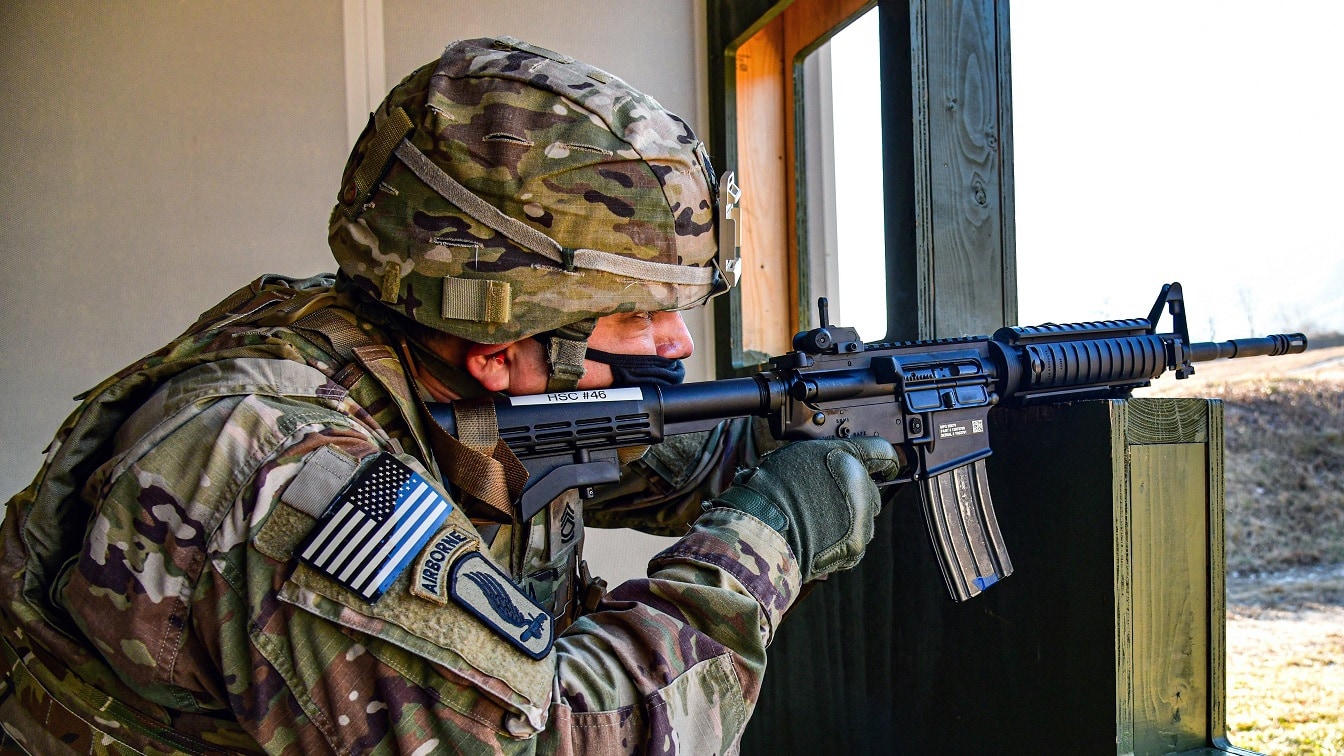“You left [Somalia] carrying disappointment, humiliation, and your dead with you,” boasted Usama Bin Laden in his infamous 1996 Fatwa—declaration of holy war—against the United States and its allies. He was referring to the infamous Battle of Mogadishu, otherwise known to the public as “Black Hawk Down,” thanks to the excellent writing of Mark Bowden and the brilliant filmmaking of Ridley Scott in the aftermath of the terrible events in the Somali capital from October 3-4, 1993.
Bin Laden’s statement was not mere gloating by the lanky jihadi leader. It was a tell—one that most Americans didn’t understand until many years thereafter. Unbeknownst to many in the West, as Somalia devoured itself in a multi-sided civil war, al Qaeda moved into the blighted East African failed state to provide training and supplies to the Somali faction led by the vicious warlord, Mohammed Farrah Aidid.
Specifically, the year before the Black Hawk Down incident occurred, in 1992, Egyptian-born al Qaeda military expert, Mohammed Atef, or “Abu Hafs” as he was known by his fellow terrorists, was deployed by Bin Laden to Somalia. There, he offered training to Aidid’s forces to instruct how to properly use rocket-propelled grenades (RPG) and how to use them to take down American helicopters.
This, of course, would prove decisive during the Somali engagement against the Americans on Oct. 3-4, 1993, when two Black Hawk helicopters belonging to the U.S. Army were successfully shot down by the Somalis during the Battle of Mogadishu.
As would later be revealed to the investigators for the 9/11 Commission, who were investigating al Qaeda’s history of aggression against the United States which ultimately led to the 9/11 attacks, it was determined that several al Qaeda operatives had deployed to Somalia to assist the Somalis in preparing to attack the Americans.
While U.S. intelligence does not believe al Qaeda plotted the attacks on U.S. forces deployed into Mogadishu on Oct. 3-4, 1993, the fact that U.S. forces had been sent to Somalia as part of a larger peacekeeping operation encouraged Bin Laden’s terrorist organization to exploit what it believed to have been an opportunity: to strike a decisive blow against the American military juggernaut.
Al Qaeda’s Mission
Since the Soviet Union’s pullout of Afghanistan in 1988, Bin Laden, who had fought alongside the CIA-funded anti-Soviet resistance fighters known as the Mujahideen, had created a faction of mostly Arab fighters and called it al Qaeda (or, “The Base” in Arabic).
Al Qaeda would be the vanguard for inspiring wider revolution throughout the Islamic world and would foster the restoration of the Islamic caliphate, the likes of which had not been seen since the collapse of the Ottoman Empire in 1923. But to achieve this herculean task, Bin Laden needed to show his co-religionists that America was weak; that the superpower could bleed.
Thanks to al Qaeda’s assistance, the Somalis inflicted a terrible defeat upon the more powerful Americans.
At the Battle of Mogadishu, not only were two Black Hawk helicopters shot down by the equivalent of peasants, but 18 servicemen were murdered, an American pilot was captured and held hostage for days thereafter, and two Delta Force operators were murdered—with their bodies being paraded through the streets as trophies by the raging Somali hordes.
Bin Laden watched these scenes as they played out on CNN. He then saw as the mighty Americans – rather than seek retribution upon Mogadishu – fled Somalia.
Thus, Bin Laden could effectively make his case to the Islamic world that the Americans were the weaker horse. Because of this, Bin Laden believed that the future belonged to al Qaeda.
The U.S.-backed apostates who ruled over Islamic territories could be overthrown because the Americans – if scratched even slightly – would not have the backs of the apostates they had supported since the Cold War.
Al Qaeda’s vision of a pan-Islamic caliphate could be built.
The weakness the Americans displayed in the aftermath of the Battle of Mogadishu—choosing to run instead of fight—and the subsequent chaos, played into Bin Laden’s long-term plans. From the Somali example, Bin Laden began a series of probing operations. He bombed the World Trade Center a year later.
Bin Laden attacked U.S. embassies in Africa. Al Qaeda eventually blew up part of the USS Cole, a U.S. Navy destroyer, as it passed through Yemeni waters. Eventually, the terrorist organization hit America in the most spectacular way.
Weakness Begets Weakness
Bin Laden’s nefarious plots could have been delayed or even prevented had America responded. Like Hitler probing the will of the Allies by slowly invading Europe bit by bit, Bin Laden was poking the Americans to see when—and if—they’d finally respond to him.
When they did not, it encouraged him to go-for-broke on 9/11. And he did.
As we enter the 30th anniversary of the Battle of Mogadishu we must not only remember the American heroes of that awful event. We must also remember the lesson of that failed U.S. military operation.
The failure to respond forcefully to terrorist provocations or to show weakness in the face of terrorism, such as we did in our chaotic pullout of Afghanistan in 2021 or in our botched response to al Qaeda’s attacks on the U.S. consulate in Benghazi, Libya in 2011, will only compound America’s problems and create greater misery.
A 19FortyFive Senior Editor and an energy analyst at the The-Pipeline, Brandon J. Weichert is a former Congressional staffer and geopolitical analyst who is a contributor at The Washington Times, as well as at the Asia Times. He is the author of Winning Space: How America Remains a Superpower (Republic Book Publishers), Biohacked: China’s Race to Control Life (Encounter Books), and The Shadow War: Iran’s Quest for Supremacy (July 23). Weichert occasionally serves as a Subject Matter Expert for various organizations, including the Department of Defense. He can be followed via Twitter @WeTheBrandon.

